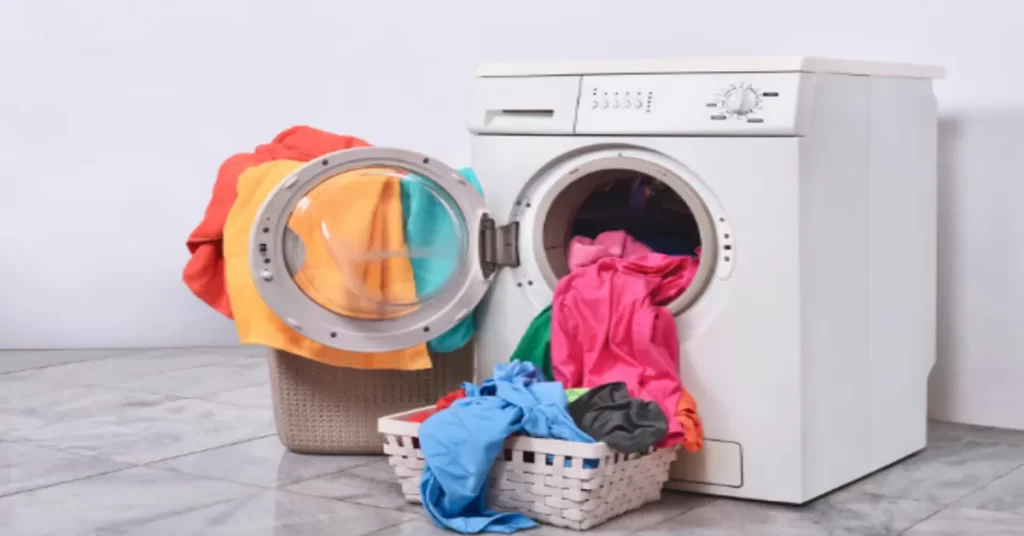Understanding Automatic Washing Machine Load Capacity: What’s Best for Your Family?
Laundry day can be much easier and more productive if you have the right washing machine. One important thing to think about is the load capacity, which is how much laundry the machine can handle in one go. To make sure your washing machine meets your family’s needs without wasting water, energy, or time, it’s important to understand load capacity. In this blog, we will talk about what load capacity is, how to choose the right one for your home, and why it matters.
Load Capacity: What Is It?
The machine’s load capacity, expressed in kilograms, shows how much dry cleaning it can handle in a single cycle. 7 kilos of dried clothes, for instance, can be loaded into a washing machine with a 7 kg load capacity. It’s vital to just weigh the clothes themselves because this measurement does not account for water weight.
Washing machines can hold loads ranging from 5 kg to over 12 kg, depending on the model. How many laundry cycles you perform each month, how big your home is, and what kinds of clothes you need to wash all determine how big of a capacity is best for your family.
Load Capacity: What Is It?
The amount of dry cleaning that the machine can process in a single cycle is indicated by its load capacity, which is stated in kilos. For example, a washing machine with a 7 kilogram load capacity may hold 7 kg of dried clothes. Weighing the clothing alone is essential because this measurement does not take water weight into account.
Depending on the type, washing machines can handle loads weighing anywhere from 5 kg to more than 12 kg. The ideal capacity for your family depends on a number of factors, including the number of laundry cycles you do each month, the size of your home, and the kind of garments you need to wash.
How to Pick the Correct Load Capacity
To get the most out of your washing machine, select the appropriate load capacity. How to choose what’s best for your family can be found here:
Think About the Size of Your Family
- A washing machine with a capacity of 5-7 kg is usually adequate for small families (1-2 people). It’s ideal for doing regular washing, such as small bedding items, shirts, and towels.
- A machine with a 7-9kg capacity is more appropriate for medium-sized households consisting of three to four individuals. Larger loads, like bedding, drapes, and the weekly laundry pile, can fit in this size.
- A 9kg or larger machine is perfect for large families (5 people or more) or for those who do laundry less regularly. Heavy blankets, duvets, and other bulkier goods can be handled by it.
Think About Laundry Habits
A machine with a smaller capacity can be sufficient if you prefer to wash smaller loads more regularly. A higher capacity machine will save time and work if you prefer to do all of your clothes at once.
Think about the kinds of clothing you frequently wash. A higher capacity machine will be able to manage larger loads better if you often wash heavy goods like jeans, towels, or beds.
Space and Installation
As larger capacity machines tend to be physically larger, ensure sure your laundry area is large enough. To make sure the washing machine will fit comfortably, measure the area where you intend to place it.
Why Load Capacity Matters
Selecting the appropriate load capacity is crucial for a number of reasons:
Energy Efficiency: The least amount of water and energy is used when washing a full load. A machine that is too large for your requirements may waste resources, and a machine that is too small may require more frequent cycles, which would require more energy.
Clothing Care: Stuffing too much into a washing machine will cause it to overstuff and harm your clothing. On the other hand, if the machine is underloaded, the garments won’t get enough movement during the wash cycle, which could lead to inadequate cleaning.
Time and Convenience: You can save time by washing the required amount of laundry in a single cycle when you have the proper load capacity. This can significantly impact how busy families handle their everyday tasks.
Last Note
It’s crucial to comprehend and select the appropriate washing machine load capacity if you want to effectively handle your family’s laundry needs. You may choose a washing machine that not only cleans your clothing efficiently but also saves you time, energy, and water by taking your family size, laundry routine, and available space into consideration. A carefully selected washing machine can transform into a dependable domestic assistant, transforming laundry day from a tedious task to an effortless one.











